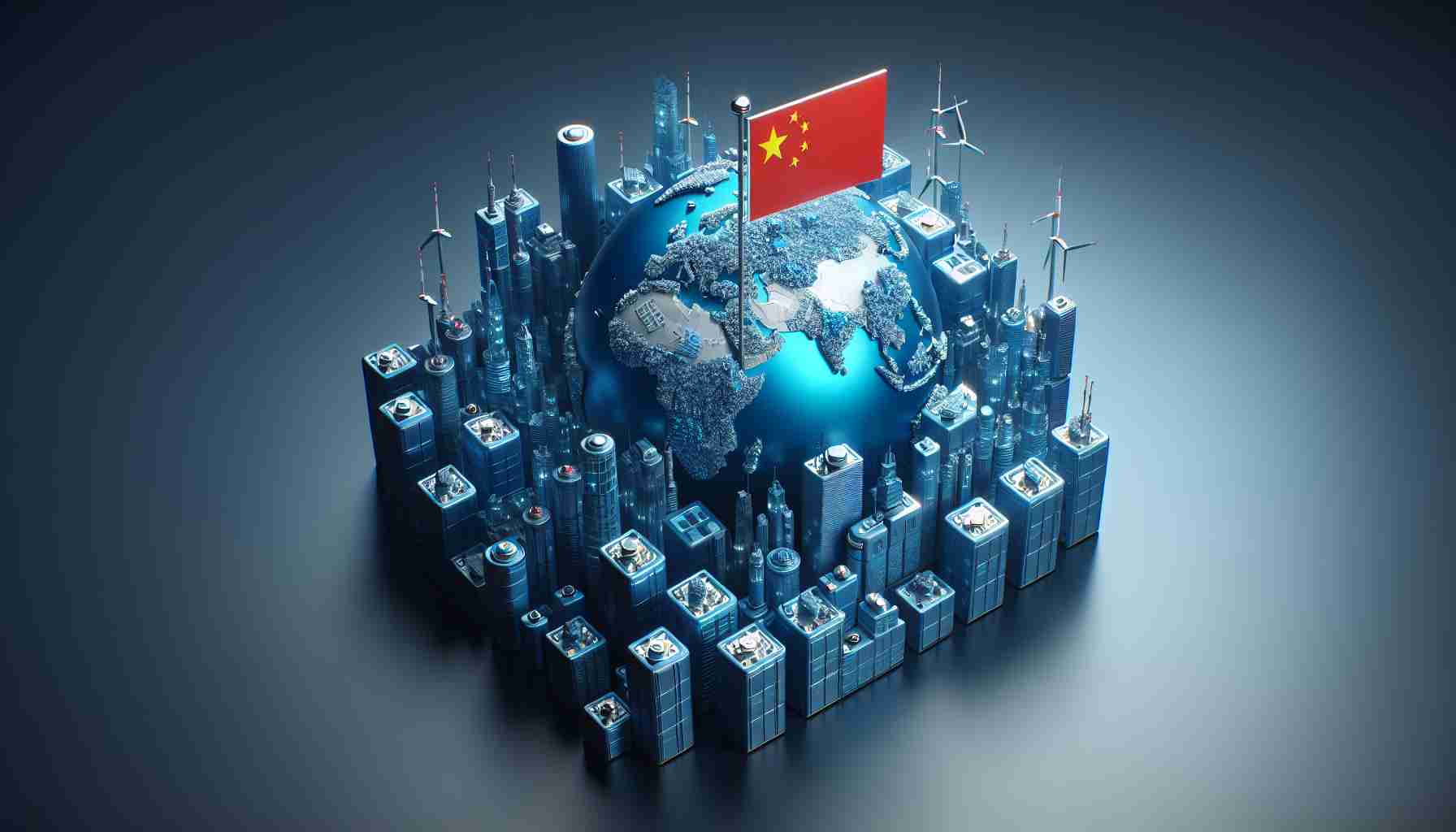China is playing an increasingly prominent role as a global producer of electric vehicle (EV) batteries. Concerns are growing in the United States and Europe that Chinese electric cars will soon flood their markets, surpassing traditional automotive companies and leaving the West dependent on a country they increasingly see as a strategic rival. In this situation, one of the leading EV battery manufacturers in the world, Chinese company Contemporary Amperex Technology (CATL), is urging industry leaders and governments to separate geopolitical issues from battery recycling technology.
Robin Zeng Yuqun, the founder and CEO of CATL, spoke on this topic at a panel on electric vehicles at the World Economic Forum in Davos. Zeng claims that CATL is able to recycle almost all nickel, cobalt, and manganese used in electric vehicle batteries. These minerals are crucial in the production of lithium-ion batteries, which are traditionally used in many EVs.
Zeng warns that the widespread adoption of electric vehicles could lead to resource constraints. “The demand for critical materials could increase fivefold over the next 10 years, considering the rapid growth of the industry,” he said. If societies truly embrace electric vehicles, “there will be very small amounts of new critical materials available for extraction,” he warns.
Zeng also stated that his company is ready to provide battery recycling technology to foreign car manufacturers and claims that Chinese recycling plants can recover key metals from batteries in higher quantities than European plants. “If we can provide these recycling technologies to Europe, the United States, and the rest of the world, managing the issue of resource extraction would become very easy,” he suggests.
CATL is one of the top EV battery manufacturers in the world and holds about one-third of the global market. Its customers include companies like Tesla and BMW, and it sells more batteries than Chinese EV giant BYD.
Zeng founded Amperex Technology in 1999, supplying batteries to consumer electronics companies such as Samsung and Apple. In 2011, Zeng and a group of Chinese investors acquired an 85% stake in the EV battery business of Japanese company TDK, rebranding it as CATL. The company has been rapidly expanding amidst the fast-growing EV sector in China, supported by government tax incentives and subsidies.
CATL has battery factories in Germany and Hungary and also collaborates with a Thai state-owned petroleum company in EV battery assembly plants in Thailand. The company has also partnered with Western automakers, including Stellantis in Europe and Ford in Michigan, USA.
The situation surrounding the Michigan factory raised concerns in the US that the Chinese company would benefit from tax incentives provided for in the Inflation Reduction Act. Politicians are demanding that Ford provides detailed information about its relationship with CATL.
Ford plans to start producing affordable lithium-ion batteries in its Michigan factory using technology licensed from CATL by 2026, although it temporarily halted construction work in September, blaming the United Auto Workers union for issues.
Chinese electric cars also face geopolitical issues. The European Commission launched an investigation in September of last year to determine whether Chinese EV manufacturers, such as BYD, are unfairly supported by state subsidies. The US also denies tax credits to electric vehicles that are either made in China or use components produced in the country.
Zeng informed Nikkei Asia that CATL’s plans for a battery factory in the US would not be affected by the new regulations under the Biden administration.
Completely eliminating China from the battery supply chain will be a challenge. Bloomberg estimates that Chinese battery manufacturers supply 80% of globally used cells. China also processes the majority of minerals used in EV batteries. According to the International Energy Agency, China processes up to 70% of global lithium and cobalt, as well as about 35% of nickel.
FAQ:
1. What role do China play as a producer of electric vehicle batteries?
China is playing an increasingly prominent role as a global producer of electric vehicle batteries.
2. What are the concerns in the United States and Europe regarding Chinese electric cars?
Concerns are growing in the United States and Europe that Chinese electric cars will soon flood their markets, surpassing traditional automotive companies and leaving the West dependent on China.
3. Who is Robin Zeng Yuqun and what is CATL?
Robin Zeng Yuqun is the founder and CEO of CATL, one of the leading producers of electric vehicle batteries in the world.
4. What are the key minerals used in the production of lithium-ion batteries for electric vehicles?
The key minerals used in the production of lithium-ion batteries for electric vehicles are nickel, cobalt, and manganese.
5. What threats does the widespread adoption of electric vehicles pose?
The widespread adoption of electric vehicles could lead to a limitation of critical resource availability, as the demand for these resources increases with the rapid growth of the industry.
6. How does CATL propose to address the issue of battery recycling?
CATL is urging industry leaders and governments to separate geopolitical issues from battery recycling technology. They claim to be capable of recycling the majority of minerals used in electric vehicle batteries.
Recommended Links:
CATL Website
Tesla Website
BMW Website
Stellantis Website
Ford Website
The source of the article is from the blog tvbzorg.com
